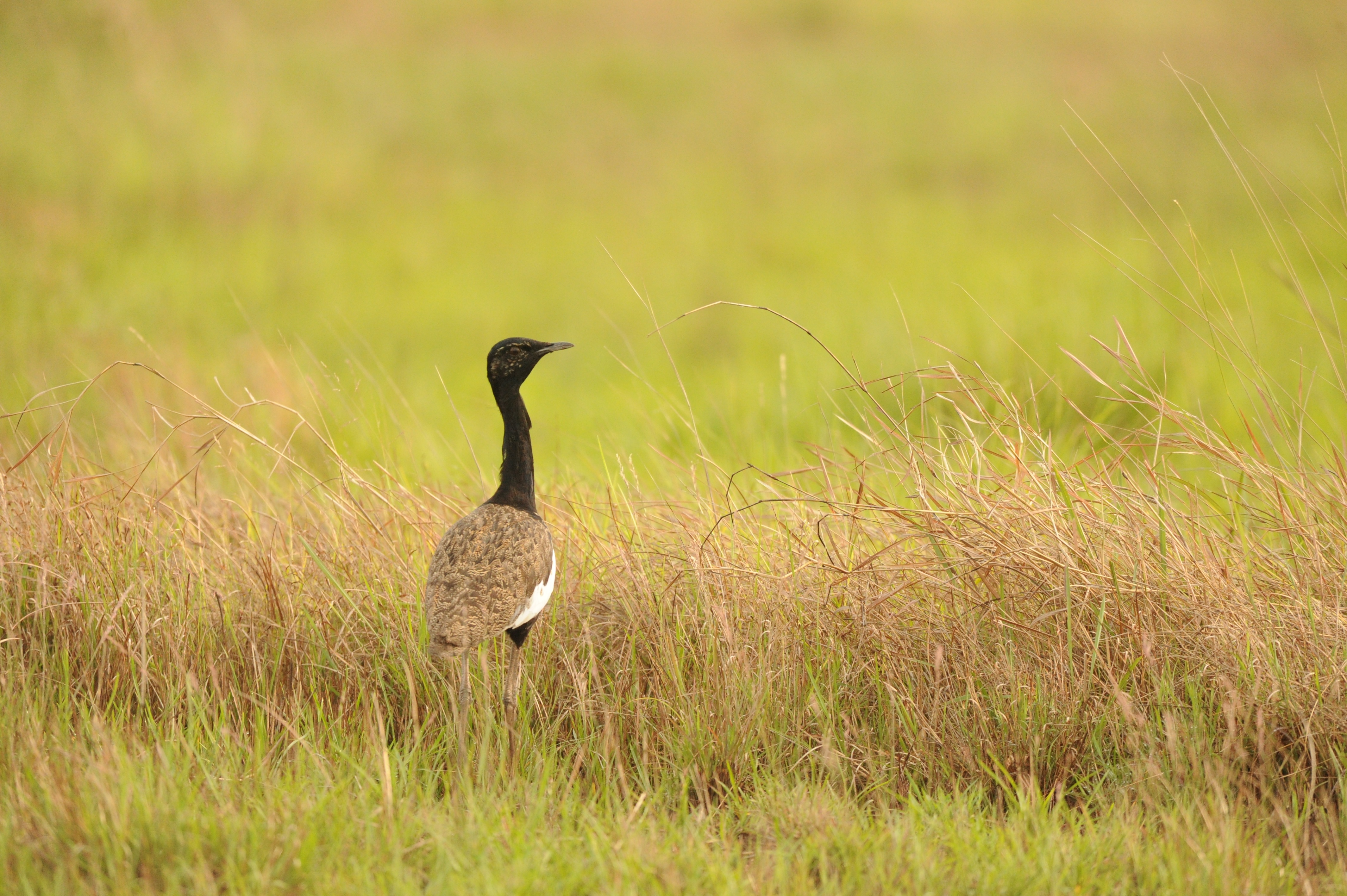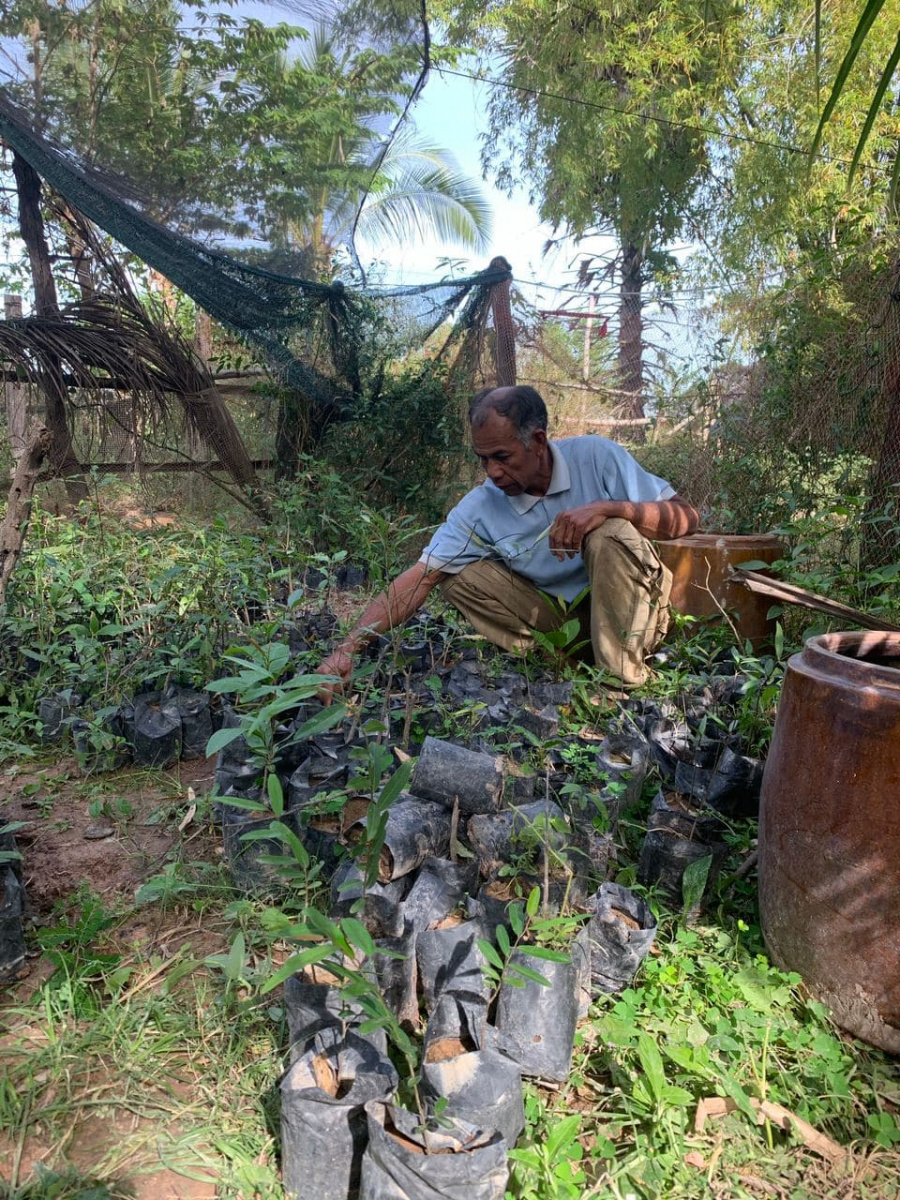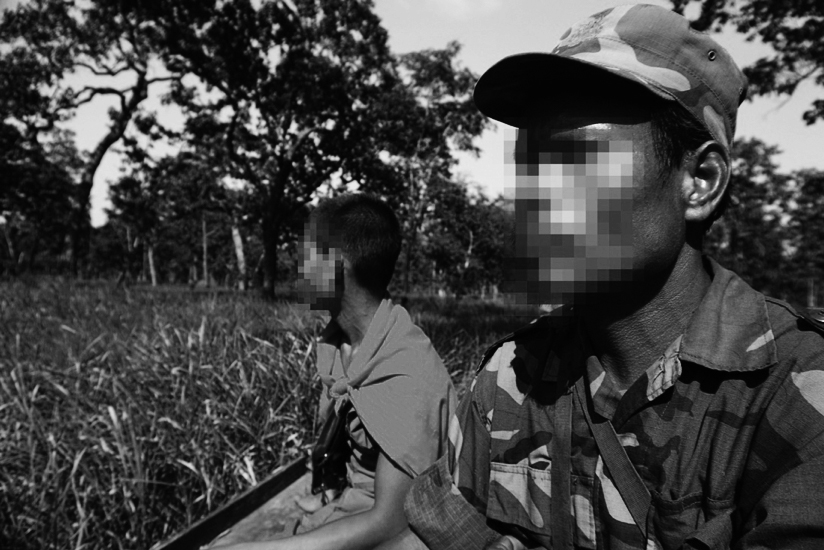Protecting the Critically Endangered Bengal florican in Cambodia
With funds from a number of organisations, including the Critical Ecosystem Partnership Fund (CEPF), a grant-making mechanism led by IUCN in the Indo-Burma hotspot, the Wildlife Conservation Society (WCS) Cambodia is contributing towards conserving the Critically Endangered Bengal Florican.

Bengal Florican
Photo: © Jonathan Eames
A proposed power transmission line at the edge of the Tonle Sap Floodplain Protected Landscape (TSFPL), which might be constructed as early as next year, would pose a new threat to the Critically Endangered Bengal Florican.
The Bengal Florican (Houbaropsis bengalensis) is listed on The IUCN Red List of Threatened Species™ as Critically Endangered, with a global population of fewer than 800. Cambodia is the most important country for Bengal Florican conservation. In 2012, University of East Anglia (UEA) researchers found that approximately 432 Bengal Floricans remain in the country.
“With 15 satellite tagged Bengal Floricans, we found that the Bengal Floricans migrate across the route of the proposed power line twice each year as they move between breeding and non-breeding grounds,” said Dr Paul Dolman from UEA.
“Some Floricans may cross the power line more frequently, as current plans show it will be built close to a protected area – the Northern Tonle Sap Protected Landscape – that supports Cambodia’s largest, and most importantly, stable, population of the species,” he added.
Power transmission lines are a particular problem for large, slow flying birds like bustards, storks, cranes and raptors, that cannot manoeuvre easily. Bustards, which include the Bengal Florican, are among the most likely of all bird species to collide with overhead lines because they have a narrow binocular vision. Researchers from UEA and the University of Lisbon compiled data showing serious impacts of power lines on other species of bustards in Central Asia, South Africa, and Europe, demonstrating the impacts likely to affect the Cambodian Bengal Florican population.
“Protecting the remaining population of Bengal Floricans in Cambodia is critical for the survival of this species. The power line company must employ mitigation techniques that ensure the Bengal Florican can co-exist with the power line,” said Mr Hong Chamnan, Bengal Florican Conservation Project Manager.
The Northern Tonle Sap Protected Landscape, which was established in 2016 from the Bengal Florican Conservation Areas and that had been previously managed by the Forestry Administration, covers 31,159 hectares between the Kampong Thom and Siem Reap provinces. WCS (Wildlife Conservation Society) works closely with the Ministry of Environment to conserve the NTSPL and the important wildlife that it supports, including the Bengal Florican. This is done through various conservation activities such as assisting law enforcement, bird nest protection, sustainable agriculture, and raising community awareness.
“Re-routing the power line in areas where it would otherwise go close to the sites where the Bengal Floricans breed is the most effective way of preventing or reducing the possibility of the Bengal Floricans being killed,” said Simon Mahood, WCS Cambodia’s Senior Technical Advisor.
“Bird flight deflectors, disks or spirals that make it easier for the birds to see the power line, could also be fitted along the wires to reduce the number of birds that would otherwise be killed,” he added.
The Bengal Florican’s conservation would not be possible without the support of the John D. and Catherine T. MacArthur Foundation, Critical Ecosystem Partnership Fund, Mohammed bin Zayed Species Conservation Fund, Chester Zoo, North Star Science & Technology, Ford Motor Company, and the National Avian Research Centre−International Fund for Houbara Conservation.
The article was originally published on the Wildlife Conservation Society Cambodia website.
Founded in 2000, the Critical Ecosystem Partnership Fund is a global leader in enabling civil society to participate in and benefit from conserving some of the world’s most critical ecosystems by providing grants for organisations to help protect biodiversity hotspots, Earth’s most biologically rich yet threatened areas. CEPF is a joint initiative of l'Agence Française de Développement, Conservation International (IUCN Member), the European Union, the Global Environment Facility, the Government of Japan (IUCN State Member), the MacArthur Foundation and the World Bank.
IUCN is leading the second phase of CEPF's work in the Indo-Burma hotspot, working together with the Myanmar Environment Rehabilitation-conservation Network (MERN) and Kadoorie Farm and Botanic Garden (KFBG) to form the CEPF Regional Implementation Team (RIT).



